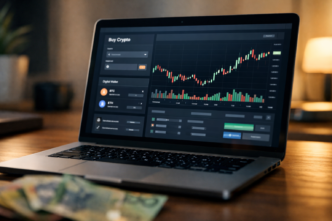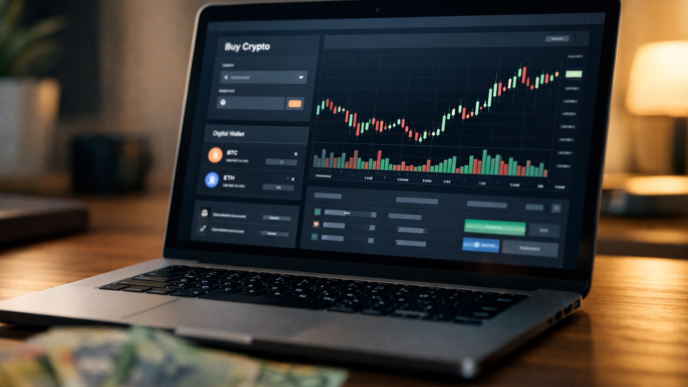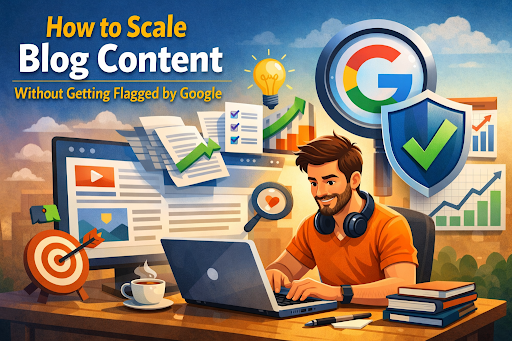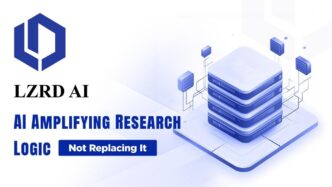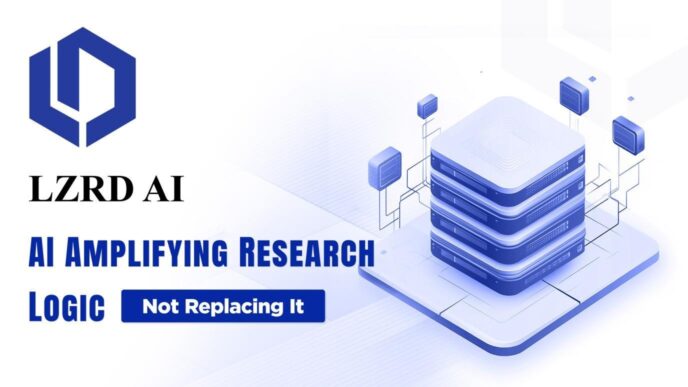So, 2024 is almost here, and everyone’s buzzing about what’s next in technology. It feels like every year, things move faster and faster. This time, we’re really going to see some big changes, especially with things like AI getting smarter and our devices becoming more connected. It’s not just about cool new gadgets, though. We also need to think about how to keep everything safe in this increasingly digital world. Let’s take a look at what 2024 tech has in store for us.
Key Takeaways
- AI is changing, moving from just generating stuff to doing more complex tasks, which will affect lots of different jobs.
- Keeping things secure is super important, especially with all the new smart devices and the rise of quantum computing.
- New technologies are coming out that will really shake up how industries work and how we live our daily lives.
- We’ll see more and more smart devices all around us, which means we need better ways to protect our information and systems.
- Building strong and flexible tech systems is key for handling future problems and making sure we can keep innovating together globally.
The Ascent of Artificial Intelligence
AI is still on the rise, and it’s changing everything. We’re seeing AI get smarter and more capable, and it’s impacting industries and our daily lives in big ways. It’s not just about chatbots anymore; it’s about AI that can really do things.
From Generative To Agentic AI
Remember when AI was mostly about generating text and images? That’s changing. Now, we’re moving towards "agentic AI," which means AI that can actually perform complex tasks and make decisions on its own. This shift is huge because it means AI can automate more sophisticated processes. Think of TuringBot agents helping with software development – they’re getting way faster thanks to generative AI. We might soon see developers becoming more like bot supervisors than coders. Generative AI for language is becoming the new standard for engaging with technology. Edge intelligence is also playing a big role, embedding AI capabilities directly into devices to enhance user experiences.
AI’s Impact on Industries
AI is already shaking up industries across the board. From healthcare to finance, AI is being used to automate tasks, improve decision-making, and create new products and services. The creative industries are also grappling with AI-generated content, forcing us to reconsider the very definition of creativity and authorship. Autonomous mobility is getting a boost from edge intelligence and agents. Applications in goods transportation, physical space management, and urban public transportation are expected to see substantial growth in the next 2–5 years.
Ethical Considerations in AI Development
As AI becomes more powerful, we need to think about the ethical implications. That means addressing things like:
- Bias in algorithms: We need to make sure AI systems are fair and don’t discriminate against certain groups.
- Potential for misuse: AI could be used for malicious purposes, so we need to put safeguards in place.
- Responsible AI development: We need to develop AI in a way that benefits humanity and promotes fairness and transparency.
Regulatory frameworks and societal guidelines must evolve to ensure that AI serves humanity, promoting fairness, transparency, and accountability.
The Future Belongs To Those Who Secure The Present

With AI and connected tech moving so fast, security is more important than ever. It’s not just about keeping up; it’s about staying ahead, especially since AI can be used for both good and bad. Let’s look at some key areas:
IoT Security Innovations
All these new smart devices are cool, but they also mean more ways for bad actors to get in. Securing the expanding attack surface is a big deal. It’s not just about individual devices; it’s about the whole network. We need better ways to protect all these connected things. Think about your smart fridge getting hacked – sounds silly, but it could be a gateway to your whole home network. cybersecurity trends are showing that IoT devices are becoming a bigger target, so better security is a must.
Zero Trust Edge Adoption
Zero Trust is still a hot topic, and for good reason. It’s about trusting nothing and verifying everything. Zero Trust edge takes this idea and applies it to remote environments. It’s a mix of networking and security tools managed in the cloud. It helps secure remote work and branch offices by making sure everyone, and every device, is authenticated before getting access. It’s like having a super strict bouncer at every door.
Quantum Security Preparedness
Okay, quantum computers aren’t breaking encryption today, but they could be soon. That’s why quantum security is becoming a thing. It’s about getting ready for a future where current encryption methods are useless. This means working on new algorithms that can resist quantum attacks and making sure our systems are flexible enough to adapt. It’s like future-proofing our digital world. It might seem like science fiction, but the time to prepare is now.
Here’s a quick look at the timeline:
| Phase | Description | Timeline |
|---|---|---|
| Research | Developing quantum-resistant algorithms | Ongoing |
| Standardization | Defining standards for new cryptography | 2025-2027 |
| Implementation | Integrating new algorithms into systems | 2027-2030 |
| Transition | Phasing out old encryption methods | 2030+ |
Transformative Technological Horizons
Technology keeps changing, and 2024 will be no different. It feels like every day there’s something new to learn. These shifts will affect how we live, work, and interact with each other. It’s a bit overwhelming, but also pretty exciting to see what’s coming next. I’m curious to see how these changes will play out in the long run.
Redefining Industries with 2024 Tech
Okay, so every industry is going to be touched by tech in 2024. Think about manufacturing using more robots, healthcare using AI Insights for faster diagnoses, and finance using blockchain for secure transactions. It’s not just about making things faster; it’s about creating new possibilities. The changes are happening fast, and companies need to adapt or get left behind. It’s a wild time to be in business, that’s for sure.
Shifting Paradigms in Daily Life
Our daily lives are changing too. Smart homes are becoming more common, with everything connected and automated. Virtual and augmented reality are offering new ways to experience entertainment and education. Even transportation is evolving with electric vehicles and self-driving cars on the horizon. These changes are making life more convenient, but they also raise questions about privacy and security. It’s a trade-off, and we need to think about the implications.
Key Areas of Dramatic Change
Here are some areas where we’ll see big changes:
- Artificial Intelligence: AI is getting smarter and more integrated into everything we do. It’s not just about robots; it’s about algorithms that make decisions for us.
- Renewable Energy: The push for sustainable energy is driving innovation in solar, wind, and other renewable technologies. This is crucial for the environment and our future.
- Biotechnology: Advances in biotech are leading to new treatments for diseases and ways to improve our health. This field has the potential to revolutionize healthcare.
Emerging Technologies Reshaping Industries
It’s wild to think about how much tech is changing things, right? It’s not just about faster phones or cooler gadgets anymore. We’re talking about entire industries getting flipped on their heads. Let’s look at some of the stuff that’s about to blow up in a big way.
New Technologies Poised for Impact
Okay, so everyone’s buzzing about AI, but there’s way more happening. Think about advancements in biotech, for example. We’re seeing crazy stuff like personalized medicine becoming more of a reality. Then there’s the whole quantum computing thing – still early days, but the potential is mind-blowing. These technologies aren’t just upgrades; they’re total game-changers.
Here’s a quick rundown:
- Biotech: Personalized medicine, gene editing, synthetic biology.
- Quantum Computing: Complex problem-solving, advanced simulations, cryptography.
- Advanced Materials: Graphene, nanomaterials, self-healing materials.
Reshaping User Experiences
User experience is everything these days. Companies are fighting tooth and nail to make things easier and more intuitive. Augmented reality (AR) and virtual reality (VR) are finally starting to deliver on their promises, moving beyond just gaming and into practical applications like training, design, and even remote collaboration. And don’t forget about the annual list of top emerging technologies for 2024 – they’re all about making our lives smoother.
Beyond AI: Diverse Tech Advancements
While AI gets all the hype, there’s a ton of other cool stuff brewing. Think about the Internet of Things (IoT) and how it’s connecting everything. We’re talking smart homes, smart cities, and industrial IoT that’s making factories way more efficient. Blockchain is also still kicking around, finding new uses beyond just cryptocurrency. And let’s not forget about advancements in robotics, which are automating tasks across all sorts of industries. It’s a wild time to be alive, honestly.
Here’s a quick look at some of the diverse tech advancements:
- IoT: Smart homes, smart cities, industrial automation.
- Blockchain: Supply chain management, secure transactions, digital identity.
- Robotics: Automation, manufacturing, healthcare.
Navigating the Connected World
It’s wild how many devices are connected now, right? Everything from your fridge to your toothbrush is online. But with all this connectivity comes a whole bunch of new problems. We’re talking about security risks, privacy concerns, and just the general headache of managing it all. It’s like we’ve built this amazing, interconnected world, but we’re still figuring out how to drive in it.
Proliferation of Smart Devices
Smart devices are everywhere. Seriously, look around. Your TV, your thermostat, even your dog’s collar might be connected. This explosion of devices is changing how we live, work, and play. But it also means there are more entry points for hackers and more data being collected about us. It’s a trade-off, for sure. I mean, who doesn’t love the convenience of a smart home device, but at what cost?
Securing Expanding Attack Surfaces
With every new device we add to the network, we’re basically expanding the area that hackers can attack. It’s like building a bigger house with more doors and windows – more opportunities for someone to break in. Securing these expanding attack surfaces is a huge challenge. We need better security measures, stronger passwords, and more awareness about the risks involved. Think of it as digital home security – you wouldn’t leave your front door unlocked, would you?
Interconnected Systems and Risks
All these devices aren’t just sitting around doing their own thing. They’re talking to each other, sharing data, and working together. That’s great for convenience, but it also means that if one device gets compromised, it could potentially affect the entire system. It’s like a chain reaction – one weak link can bring everything down. We need to think about the risks of these interconnected systems and how to protect them. It’s not just about securing individual devices anymore; it’s about securing the whole network.
Strategic Investments in Security
It’s easy to get caught up in the excitement of new tech, but let’s be real: if you don’t protect yourself, all that innovation could backfire. Smart investments in security aren’t just a good idea; they’re a must. Think of it like this: building a house with no locks on the doors. Doesn’t matter how fancy the house is if anyone can walk in and take what they want. That’s why forward-thinking security measures are so important.
Foresight in Cybersecurity
Being proactive is the name of the game. It’s not enough to react to threats as they pop up; you need to see them coming. This means investing in threat intelligence, doing regular risk assessments, and staying up-to-date on the latest attack methods. Think of it as cybersecurity weather forecasting – the better you can predict the storm, the better you can prepare.
Mitigating Vulnerabilities
Finding and fixing weaknesses is a never-ending job. Regular security audits, penetration testing, and vulnerability scanning are all key. It’s like giving your house a thorough inspection to find any cracks in the foundation or weak spots in the walls. Patch management is also super important – keeping your systems updated is one of the easiest ways to shut down potential entry points for attackers. Consider investing in 5G security market solutions to protect your network.
Protecting Against Malicious Actors
It’s not just about preventing attacks; it’s about minimizing the damage when they happen. This means having strong incident response plans in place, using tools like intrusion detection and prevention systems, and training employees to spot phishing attempts and other social engineering tactics. Think of it as having a security team ready to jump into action at a moment’s notice. It also means having backups and recovery plans so you can bounce back quickly if something goes wrong.
Here’s a quick rundown of key areas for investment:
- Advanced Threat Detection: Using AI and machine learning to spot unusual activity.
- Security Automation: Automating tasks like patching and incident response to free up human analysts.
- Cloud Security: Protecting data and applications in the cloud with specialized tools and strategies.
Preparing for Tomorrow’s Challenges

Building Resilience in Tech
Okay, so tech is always changing, right? It’s not enough to just keep up; you gotta be ready for anything. That means building systems that can handle problems, adapt to new situations, and bounce back from setbacks. Think of it like this: your phone drops, but it’s got a case, so it’s fine. That’s resilience in action. We need that same kind of thinking in our tech infrastructure. One way to do this is through redundancy – having backup systems ready to go if the main one fails. Another is to design for failure, assuming things will go wrong and planning for it. For example, cloud services are great because they can automatically shift resources around if one server goes down. It’s all about making sure things keep running, no matter what.
Fostering Adaptability
Adaptability is all about being able to change when things change. And let’s face it, things always change. In tech, this means being open to new ideas, new technologies, and new ways of doing things. It also means being willing to learn and unlearn. What worked last year might not work this year, so you have to be ready to adjust. Companies that are good at this often have a culture of experimentation, where people are encouraged to try new things and not afraid to fail. They also invest in training and development, so their employees have the skills they need to stay relevant. Think about how quickly AI is evolving; if you’re not constantly learning, you’re going to fall behind. Keeping an eye on top tech stocks can help you anticipate market shifts.
Global Cooperation in Innovation
No one can solve the big problems alone. Climate change, cybersecurity, pandemics – these are all global challenges that require global solutions. That means countries, companies, and individuals need to work together to share knowledge, resources, and ideas. This can be tough, because everyone has their own interests and priorities. But if we want to build a better future, we have to find ways to cooperate. This could involve things like international agreements on data privacy, joint research projects on renewable energy, or shared cybersecurity threat intelligence. The more we work together, the better equipped we’ll be to face whatever comes our way. Here’s a quick look at some areas where cooperation is key:
- Cybersecurity: Sharing threat information and coordinating responses to attacks.
- Climate Change: Developing and deploying clean energy technologies.
- Healthcare: Researching and distributing vaccines and treatments.
Conclusion
So, as we get closer to 2024, it’s pretty clear that the future is going to be a mix of new things and chances. Tech stuff, like AI, will keep changing how we do things. Also, what’s happening around the world and the climate situation will play a big part in how things go. There will definitely be some tough spots, but people are always coming up with new ideas and working together, which helps us move forward. What happens in 2024 really depends on the choices we make right now. That’s how we build the world we’ll live in later. There’s a lot of good that can come out of all this, new discoveries and positive changes. Think about these ideas, check out the new stuff we talked about, and see how it might affect your own community. Look into these areas more, and maybe even help make things better. The future is for those who can dream it up and then make it happen.
Frequently Asked Questions
How is AI changing in 2024?
AI is becoming much smarter, moving from just making things up (like Generative AI) to actually doing tasks on its own (like Agentic AI). This means AI will be able to handle more complex jobs and make decisions, changing how many businesses work.
Why is security so important with new technology?
As more smart devices connect to the internet, there are more ways for bad guys to try and break in. New security steps like better IoT security, ‘Zero Trust’ systems, and preparing for super-fast ‘Quantum’ computers are becoming super important to keep our information safe.
How will new tech affect industries and daily life?
New technologies will completely change how many businesses operate and how we live our daily lives. Think about how smartphones changed everything – 2024 will bring similar big shifts in many areas.
Are there other important technologies besides AI?
Beyond AI, we’ll see other amazing tech advancements. These new tools will make user experiences better and bring fresh ideas to many different fields, not just those using AI.
What does a ‘connected world’ mean for security?
With so many smart devices around us, our world is more connected than ever. This means we need strong security to protect all these devices and the systems they link to, because more connections also mean more places for problems to start.
Why is it important to invest in cybersecurity now?
It’s super important for companies and people to plan ahead for cybersecurity. This means finding and fixing weak spots before they become a problem and setting up strong defenses to stop bad actors from causing trouble.





